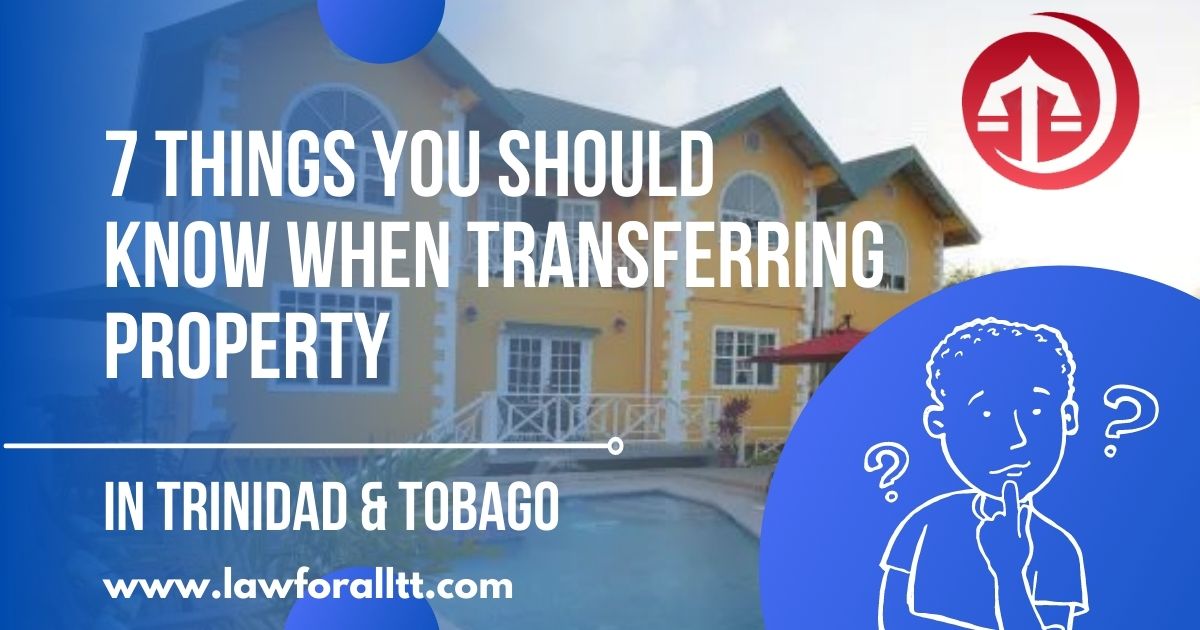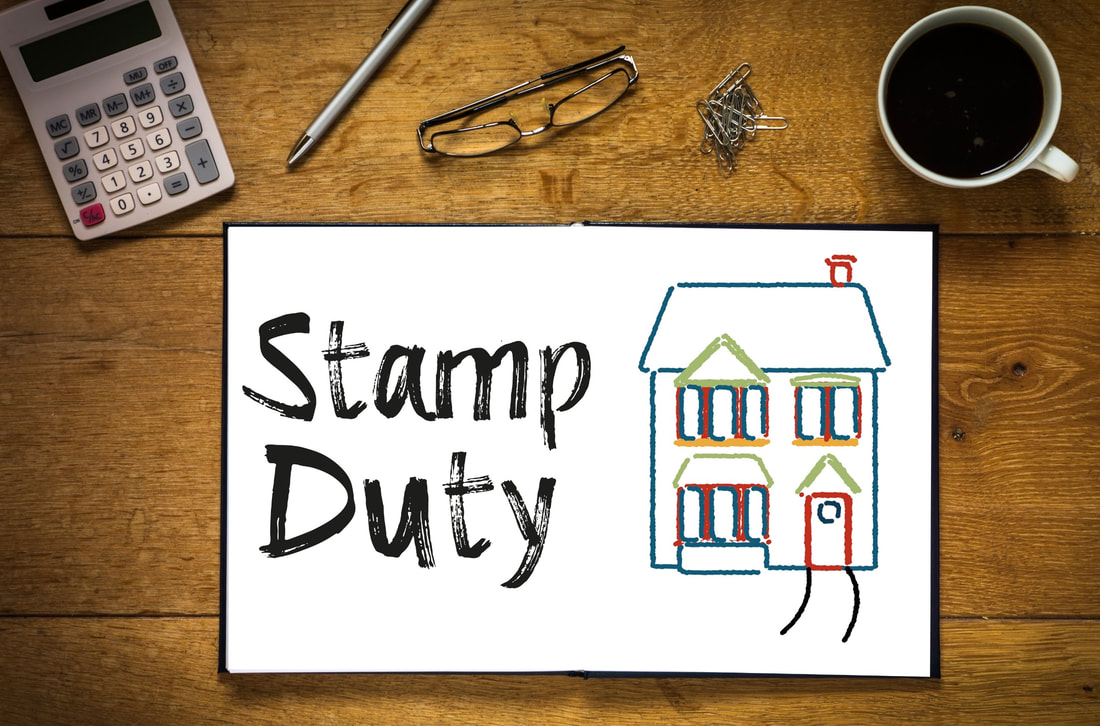|
Thinking about buying, selling or gifting property to someone in Trinidad and Tobago? The process of transferring property can seem a bit confusing. Here we'll make it easier by pointing out 7 things you should know when transferring property in T&T.
1. In Trinidad and Tobago, property is held under either the common law OR under the Real Property Act.
Under the common law system, ownership or title to land is established by a document called a Deed. About 75-80% of land in Trinidad and Tobago is registered under this system. This system is governed by common law and by statute such as the Conveyancing and Law of Property Act. The rest of land in Trinidad and Tobago is held under the Registered Title System/RPA System/Torrens System. Under this system ownership or title to land is established by a document called a Certificate of Title. This system is governed by the Real Property Act. When dealing with the transfer of property your attorney would first look at which system the property is registered under. This would determine what documents are drafted and what process he/she takes in completing the transfer. 2. Property can be transferred in different ways. The ways in which property can be transferred are:
3. When property is being transferred by sale there is usually an Agreement for Sale first.
Prior to the transfer of property, an agreement for sale is entered into by the would-be Vendor and Purchaser. This agreement contains conditions to be satisfied before the transfer takes place, the dollar amount of the sale and the down payment which is to be paid. The downpayment for the sale is usually paid at the time that the agreement for sale is executed (that is, signed by the parties). The Agreement for Sale also contains the time at which the actual transfer (signing of the Deed) and the payment of the balance of the purchase money will take place. The time period between the signing of the Agreement of Sale and the signing of the Deed itself is usually used to complete a title search of the property.
4. A Title search should be done
A title search or property title search is the process of examining public records and retrieving documents on the history of a piece of property to determine and confirm the property's legal ownership, and find out what claims or liens are on the property. The aim is to determine whether the person selling the property actually owns it and can therefore sell or transfer the property to someone else. The aim is to also determine whether he owns it free from any judgments, claims, liens or encumbrances. Your attorney has these searches done at the Land Registry at the Registrar General's Department of the Ministry of the Attorney General and Legal Affairs.
5. A Valuation needs to be done
A property valuation is an opinion or assessment of the property's value, based on the location, condition, size and other factors. A valuation must be carried out by a professional valuator and involves the valuator visiting the location and taking notes and photographs of the property. The valuator would then send a valuation report. A valuation is important because:
6. Stamp duties must be paid
Stamp duty is a tax paid to the State (by paying to the Board of Inland Revenue) and the amount to be paid depends on the value of the property. When the transfer document is completed, that is, it is drafted, signed and sworn, they are presented by your attorney to the Inland Revenue Division at the Ministry of Finance for stamping together with the necessary fees. It should be noted that the State allows for exemptions from stamp duties in the following circumstances: As of January 1st, 2021, if you are buying house and land (a residential property including a dwelling house) for the first time, the State exempts you from paying stamp duty if your property value is equal to or less than $2 million TT dollars. If the value of the residential property exceeds $2 million TTD, the following rates shall be applied:
If you are not a first time home-owner and you are buying a house and land (a residential property including a dwelling house), the State exempts you from paying stamp duty if your property value is equal to or less than $850,000 TT dollars. If the value of the residential property exceeds $850,000 TTD, the following rates shall be applied:
There are also exemptions for residential land up to a value $450,000TTD in value. If the value of the residential land exceeds $450,000TTD, the following rates shall be applied:
Your attorney-at-law will advise you on the stamp duties to be paid for your documents. 7. The documents must be registered. After the transfer document has been signed by the parties and stamp duties have been paid, the original transfer document must be lodged at the Land Registry in the Registrar General's Department at the Ministry of the Attorney General and Legal Affairs. A registered copy will be delivered to the purchaser as proof of his or her ownership of the property.
Important Notice: This post does not constitute legal advice. Always consult with an attorney on any legal problem or issue.
This website is managed by AURORA Chambers; a law practice in Trinidad and Tobago. Click HERE to receive updates straight to your inbox by subscribing to our newsletter.
0 Comments
Leave a Reply. |
Categories
All
Archives
June 2024
|
LawForAllTT.com |
|








 RSS Feed
RSS Feed